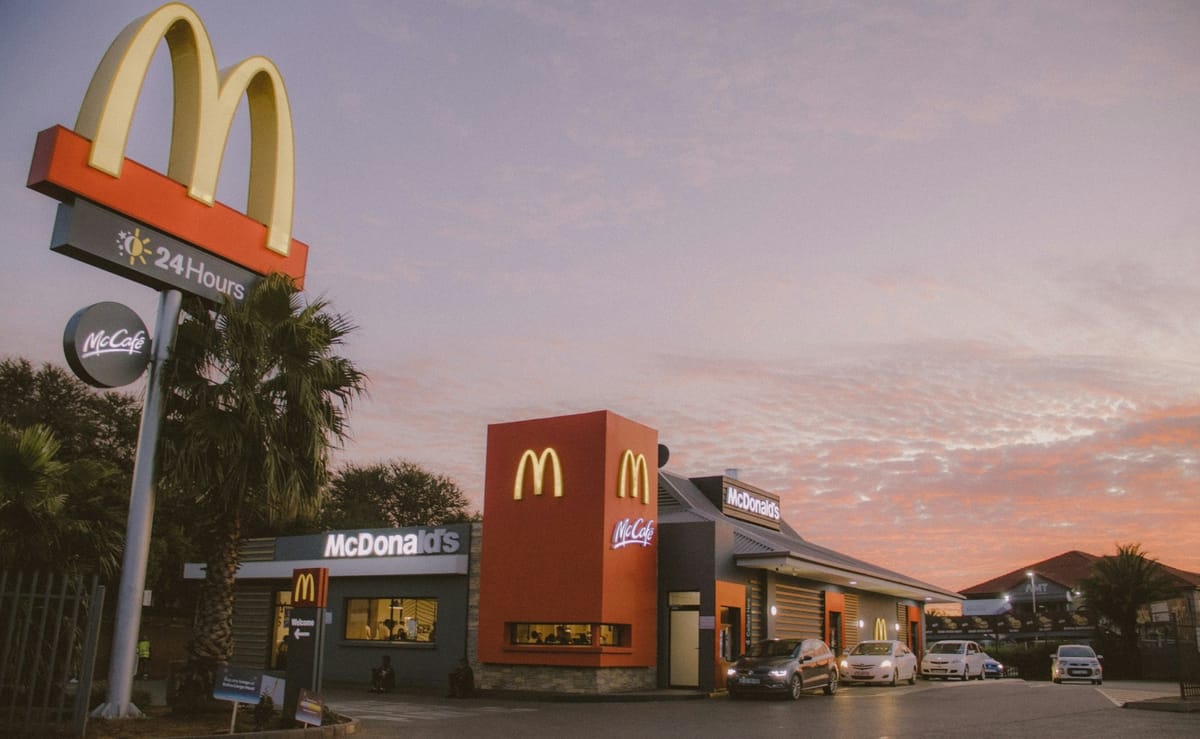How Ray Kroc Scaled McDonald's into a Global Empire

Ray Kroc wasn't the founder of McDonald's, but he was undeniably its architect. A milkshake machine salesman, Kroc stumbled upon the McDonald brothers' highly efficient burger stand in 1954 and immediately recognized its immense potential.
What followed was a masterclass in scaling, driven by Kroc's relentless vision, shrewd strategies, and unwavering principles. For any sales and marketing professional, dissecting Kroc's approach offers invaluable lessons in rapid expansion and brand dominance.
Strategic Cornerstones of Kroc's Scaling Success
Kroc's strategy wasn't about reinventing the wheel, but perfecting its spin. He focused on a few core pillars:
- Standardization to the Extreme: This was Kroc's mantra. He understood that consistency was the key to rapid growth and customer trust. From the exact thickness of the burger patty to the precise temperature of the fries, every operational detail was meticulously standardized. This wasn't just about food quality; it was about creating a predictable, repeatable experience, ensuring that a McDonald's in California tasted the same as a McDonald's in Illinois. This level of standardization made replication easy and scalable.
- The Power of the Golden Arches: While the McDonald brothers initially conceived the distinctive Golden Arches, it was Ray Kroc who truly grasped their immense potential as a universal brand symbol. He understood that in a rapidly expanding, car-centric post-war America, a highly visible, memorable, and unique architectural element was invaluable.
- Differentiation: The Golden Arches instantly set McDonald's apart. They communicated a promise of familiarity and consistency from a distance, making the choice effortless for consumers. This distinctive visual identity became a powerful competitive advantage.
- Iconic Branding: Kroc strategically leveraged these arches in advertising and signage, turning them into one of the most recognizable corporate logos in the world. They evoked feelings of comfort, speed, and affordability, creating an emotional connection with consumers. For marketers, this underscores the critical importance of creating a strong, memorable, and widely recognized brand mark that transcends language and culture, serving as a silent, yet incredibly powerful, sales tool.
- The Three-Legged Stool Philosophy: Kroc famously articulated McDonald's success resting on a three-legged stool:
- The Operator (Franchisee): He empowered franchisees to run their businesses, but within strict operational guidelines.
- The Supplier: Kroc fostered strong, long-term relationships with suppliers, ensuring consistent quality and supply chain efficiency at competitive prices. He even encouraged suppliers to invest in specialized equipment to meet McDonald's growing demands.
- McDonald's Corporation: The corporation provided the system, the brand, and the marketing muscle. This symbiotic relationship ensured all parties were invested in the mutual success of the system, fostering a powerful collective drive for growth.
- Real Estate as a Power Play: Initially, Kroc struggled to make substantial profits from the low franchise fees. His financial genius, Harry Sonneborn, suggested McDonald's buy the land on which its restaurants were built, and then lease it to franchisees. This seemingly minor shift was revolutionary. It provided McDonald's with a stable, appreciating asset base, significant recurring revenue, and immense leverage over its franchisees, ensuring compliance and long-term commitment. This real estate model became a cornerstone of McDonald's financial strength and expansion capabilities.
- Aggressive, Controlled Expansion: Kroc wasn't timid. He pursued rapid expansion, but not recklessly. He sought out dedicated, hardworking franchisees who were willing to adhere to the system. He understood that growth wasn't just about opening new locations, but about opening successful, profitable locations that upheld the brand's integrity. Nail it, then scale it.
Kroc's Unwavering Principles:
Beyond strategy, Kroc's personal principles shaped McDonald's culture and drove its success:
- Quality, Service, Cleanliness, and Value (QSC&V): This was the bedrock of Kroc's operational philosophy. He relentlessly preached these four tenets, drilling them into every franchisee and employee. QSC&V wasn't just a marketing slogan; it was a daily operational imperative that differentiated McDonald's and built customer loyalty.
- In Business for Yourself, Not By Yourself: Kroc empowered franchisees with ownership and responsibility, yet provided them with a robust, proven system and ongoing support. This balance fostered entrepreneurial drive within a structured framework, allowing for localized initiative while maintaining brand consistency.
- Relentless Pursuit of Improvement: Kroc was never satisfied. He constantly sought ways to improve the system, from kitchen efficiency to menu items. He fostered a culture of innovation and adaptation, even as he championed standardization. This drive for continuous improvement kept McDonald's competitive and relevant.
- Work Ethic and Drive: Kroc himself was a tireless worker, and he expected the same from his team and franchisees. He believed in the power of hard work and dedication, and this ethos permeated the entire McDonald's system. "Nothing in the world can take the place of persistence. Persistence and determination alone are omnipotent."
Company Culture: The Hamburger University
Kroc understood that to scale effectively, he needed to scale knowledge and culture. This led to the creation of:
- Hamburger University: Founded in 1961, this training facility in Oak Brook, Illinois, became the central hub for introducing franchisees and managers into the McDonald's system. It wasn't just about learning how to flip burgers; it was about instilling the QSC&V principles, operational excellence, and the McDonald's corporate culture.
- A Meritocratic, Performance-Driven Environment: Kroc fostered a culture where performance was rewarded. Franchisees who adhered to the system and delivered results were given opportunities to expand. This incentivized excellence and ensured that the most capable individuals were leading the charge.
- A Family Feel: While demanding, Kroc also cultivated a sense of camaraderie and shared purpose. He saw franchisees as partners, and despite his tough exterior, he genuinely cared about their success within the McDonald's system. This fostered a loyal network dedicated to the brand's growth.
Sales & Marketing Lessons:
Ray Kroc's journey with McDonald's offers timeless lessons for anyone looking to scale a business:
- Consistency is King: Predictable quality and experience build trust and repeat business.
- Systematize for Scale: Documenting processes and creating repeatable systems are crucial for efficient expansion.
- Strategic Partnerships Matter: Cultivate strong relationships with suppliers and partners who share your vision.
- Leverage Your Assets Wisely: Think creatively about how your assets (financial, intellectual, real estate) can fuel growth.
- Culture Eats Strategy for Breakfast: A strong, clearly defined company culture that aligns with your principles is essential for sustained success.
- Never Stop Improving: Even when you're at the top, there's always room for refinement and innovation.
Ray Kroc transformed a single burger stand into a global phenomenon not just through clever marketing, but through a relentless focus on operational excellence, a genius for strategic scaling, and an unwavering commitment to his core principles.
His legacy continues to serve as a powerful blueprint for building enduring brands and achieving exponential growth.
Keep Crushing!
- Sales Guy
